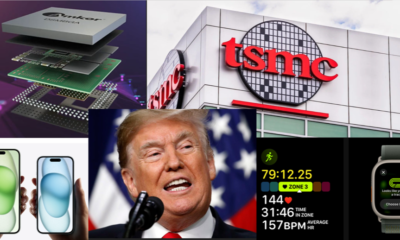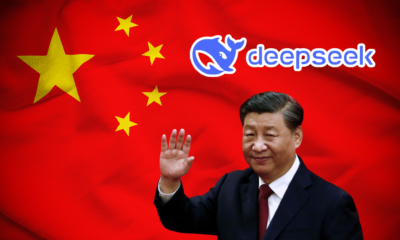In a move that propels his administration’s focus on positioning the United States as a global leader in artificial intelligence, President Donald Trump announced the launch of a $500 billion AI infrastructure project, aptly named Stargate. This ambitious joint venture involves tech heavyweights Oracle, OpenAI, and Japan’s SoftBank, with the aim of building critical AI infrastructure and generating over 100,000 jobs.
The announcement, made at the White House on Tuesday, was attended by key figures such as SoftBank CEO Masayoshi Son, OpenAI CEO Sam Altman, and Oracle Chief Technology Officer Larry Ellison. Trump called the project “the largest AI infrastructure initiative in history” and described it as a attestation to America’s potential under his leadership.
A Monumental Undertaking
The Stargate project seeks to establish “colossal data centers” and related infrastructure, with an initial investment of $100 billion that will rise to $500 billion over the next four years. The funding is expected to drive innovation in AI while strengthening the nation’s technological edge against global competitors like China.
“It’s all taking place right here in America,” Trump emphasized, adding, “China is a competitor, and others are competitors. We want it to be in this country.”
SoftBank’s Son will serve as chairman of the venture, which also includes key partnerships with Arm, Microsoft, NVIDIA, and MGX. Initial data centers are already under construction in Texas, with plans for expansion to other states.
Economic and Strategic Impact
The Stargate project is expected to generate over 100,000 jobs “almost immediately,” according to Trump. While the focus remains on re-industrializing the United States, the initiative also aims to provide strategic capabilities to protect national security.
SoftBank shares soared by over 8% following the announcement, reflecting investor confidence in the venture’s potential. Blackstone, an investment firm, had previously predicted $1 trillion in US data center investments over the next five years, further indicating the significance of Stargate in shaping the future of AI infrastructure.
Policy Shifts and Challenges
The project’s unveiling comes amid a major shift in US AI policy. Trump recently revoked an executive order by former President Joe Biden that required AI developers to adhere to safety guidelines and share testing results with the government. This deregulation aims to accelerate AI development but raises concerns about the potential risks of unchecked innovation.
However, not all are on board, critics argue that loosening regulatory oversight could lead to ethical and safety challenges in AI development. However, proponents, including Trump, believe the benefits outweigh the risks. “This monumental undertaking is a resounding declaration of confidence in America’s potential under a new president,” he said.
Stargate’s initial phase focuses on building data centers in Texas, with Oracle’s Ellison confirming that construction is already underway. Meanwhile, OpenAI noted the project’s dual goals of driving innovation and ensuring national security, stating that Stargate will not only support the re-industrialization of the United States but also provide a strategic capability to protect the national security of America and its allies.
Son, who previously pledged $100 billion for US AI investment, joked at the White House event that Trump had pushed him to increase his commitment to $200 billion. “Now I came back with $500 billion,” he quipped, signaling the scale of the initiative.

Opening The Door To Global AI Race
Stargate positions the United States as a key player in the global AI race, especially as nations like China ramp up their own investments in the sector. Trump’s emphasis on domestic development reflects a broader strategy to secure technological leadership while addressing the economic and geopolitical implications of AI.
The project also aligns with recent market trends, such as the $20 billion AI infrastructure investment announced by UAE-based DAMAC Properties. As the Stargate initiative unfolds, it will likely serve as a benchmark for large-scale technology investments in the years to come.
The global race to dominate artificial intelligence (AI) is intensifying, with countries and corporations making significant investments to secure leadership in this transformative technology.
So what are the countries leading the charge?
1) China is leading the charge backed by state-driven policies and private companies like Alibaba, Tencent, and Baidu, and is investing heavily in AI, aiming to become the global leader by 2030. The country excels in AI applications for surveillance, e-commerce, and healthcare.
2) European Union emphasizes ethical AI development, with substantial funding through programs like Horizon Europe and a focus on AI regulation to ensure safety and fairness.
3) India is leveraging its IT talent pool, India is investing in AI for sectors like agriculture, healthcare, and governance. Initiatives like the National AI Strategy reflect its ambitions.
4) Japan is advancing AI in robotics and automation, with companies like SoftBank playing a key role in global AI infrastructure.
Companies at the Forefront
At the same time, while countries are investing in AI the companies at the forefront of the AI race are OpenAI which is leading in generative AI with ChatGPT and cutting-edge research. Google’s DeepMind is a pioneer in AI research, especially in reinforcement learning.
NVIDIA dominates the hardware market with GPUs essential for AI training. Microsoft is investing heavily in AI partnerships, including a stake in OpenAI. Alibaba and Tencent are driving AI innovation in e-commerce and cloud computing in Asia.
Precautions in the AI Race
Even as the race to AI gains more traction, governments and companies must prioritize fairness, transparency, and accountability to avoid biases in AI systems. There is also a need for establishing safety guidelines and independent oversight, can mitigate risks, such as misuse of AI in surveillance or warfare. At the same time, strengthening data protection laws ensures user privacy and security in AI-driven applications.
One critical area is addressing job displacement.
The Last Bit
The Stargate project marks a bold step in the United States’ quest to lead the global AI industry. With a massive $500 billion commitment, the initiative is set to create significant economic opportunities while addressing the strategic imperatives of national security and technological dominance.
As the first data centers rise in Texas and regulatory challenges loom, the world will watch closely to see if Stargate delivers on its promise to usher in a “golden age” of AI innovation.














